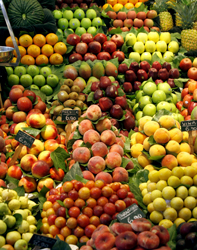The door for organic opportunities opens wider
European regulations reinforcing production methods in line with conservation of the environment and maintenance of the countryside are having an impact. As regards the organic products market, one effect is that they have resulted in an expansion of the supply base. In order for all actors in the organic food production market to take full advantage of the changing agricultural scene in Europe, the EU project OMIARD aimed to develop successful marketing strategies. Consortium members achieved this through an in-depth examination of Organic marketing initiatives (OMIs) at all levels. Partners at l'Institut National de la Recherché Agronomique in Haute-Garonne, France obtained a uniquely comprehensive insight into OMIs. By interviewing managers as well as external experts, the team collated valuable data for use in drawing up guidelines for all levels of the organic produce market. Altogether 67 case studies from 35 European regions were analysed, allowing for the huge diversity in market conditions within Europe. The evaluation of the data showed that factors internal to organic businesses were much more likely to determine success than external determinants. A clear strategic plan based on economic foundations rather than environmental considerations tended to result in success for the enterprise. Perhaps not surprisingly, the downside to this approach was that aspects like regional networking, found to be a key success factor, could be neglected. Overall, the most critical points were judged to be minimisation of logistics costs, such as transport and warehousing, and improving the supply of goods both in terms of quality and correct quantity. Because the supply base has been increased, modifications to improve the supply links and networking along the chain were recommended. The expansion of more traditional organic methods is good news for rural areas with problems like population decline. Organic production is more labour-intensive and therefore particularly valuable in lagging peripheral areas of Europe. In the process, large areas of natural outstanding beauty supporting complex animal and plant communities can be conserved.





